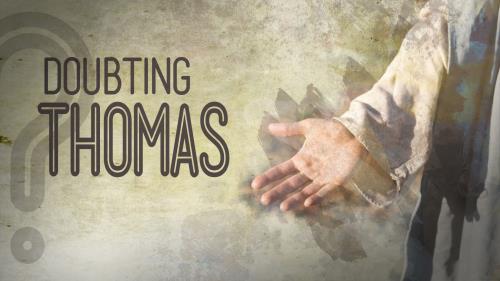-
Why Does God Allow Suffering? Series
Contributed by Scott Maze on Jun 4, 2021 (message contributor)
Summary: God’s plan for your happiness includes a design for even your distress.
This evening, I want to speak with you on this topic, “Why Does God Allow Suffering?” It’s important different religions answer this question in vary different ways. N. S. R. K. Ravi was born in 1953 in India into a family of wealth as they were in the second-highest caste, lower only than the priests. Destined for comfort and great opportunities, he was a devout Hindu. The village rejoiced with the family at his birth, especially since male children were seen as a treasure by the Indian culture. But at the age of three, Ravi was stricken with polio. His parents were devastated. They spent a fortune giving Ravi the best of medical treatment. At one point the young boy spent nine months in a total body cast. But his condition did not improve. Abandoning medical solutions, his parents turned to the village gods. His father had two expensive temples built for the gods. Yet, Ravi did not improve. Ravi’s parents began to see him as a burden. He had to have two two people to look after his needs, including 1 person who was responsible for carrying him wherever he needed to go. None of the Hindu gods heard the prayers of Ravi and his parents. His condition worsened and he became completely disabled. After all of the work, sacrifices, and money spent on their son, his parents concluded that Ravi would not walk the rest of his life because he had bad karma in a previous life. Karma is a Hindu fatalistic concept that necessitates reincarnation. The conditions of each successive life are determined by one’s bad or good deeds in past lives. It is kind of a universal law of cause and effect that determines fate or destiny. Each person must suffer for his own deeds of the past life. Ravi suffered as a young boy and was crippled because of the bad deeds he had committed in a previous life. Ravi described his childhood disease this way: “My father screamed at me on time: ‘What kind of sin have you committed? You are nothing by a burden to us.” Ravi spoke of the difficulties of his childhood: “I saw how much my parents enjoyed my brothers and sisters, but they did not want to be around me. They would tell our housekeeper to carry me away from the rest of the family on special events. I was driven almost to the point of a nervous breakdown.” So Ravi became bitter about his condition after none of the gods gave him any help. His anger and hatred towards the gods and his family grew more and more. Let me pause on Ravi’s story and we’ll return back to it in a few moments.
Look with me another entirely different perspective on suffering: “In this you rejoice, though now for a little while, if necessary, you have been grieved by various trials, 7 so that the tested genuineness of your faith—more precious than gold that perishes though it is tested by fire—may be found to result in praise and glory and honor at the revelation of Jesus Christ.” (1 Peter 1:6-7)
Your joy in life is very important to God. You may say to me, “If that is true, then why doesn’t God remove the pain in my life?” God’s plan for your happiness includes a design for even your distress.
1. The Plan of Our Father
If God allows evil and suffering to continue because he can’t stop it, then he might be good but He’s not all-powerful. On the other hand, if God allows evil & suffering to continue because He could stop it and yet He won’t stop it, then He might be all-powerful, but He’s not good. Either way, the good, all-powerful God of the Bible couldn’t exist. It’s a pretty formidable argument! What do we say to it? Here is a sampling of God’s complete providence in governing the world. Another way to say this is like this: look at how the Bible tells us all that falls under the control of God.
“I have commanded the ravens to feed you there” (1Kings 17:4)
“The Lord God appointed a plant and made it come up over Jonah” (Jonah 4:6)
“God appointed a worm that attacked the plant, so that it withered” (Jonah 4:7)
“I will send swarms of flies on you and your servants” (Exodus 8:21)
“He summoned a famine on the land and broke all supply of bread” (Psalms 105:16)
“He gave them hail for rain” (Psalms 105:32)
“He spoke, and the locusts came” (Psalms 105:34)
“The Lord will whistle for . . . the bee that is in the land of Assyria” (Isaiah 7:18)
“The lot is cast into the lap, but its every decision is from the Lord” (Proverbs 16:33)

 Sermon Central
Sermon Central



